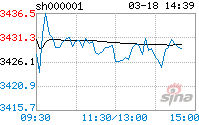$500m issue targets retail investors, size may be raised by another $200m
By GRACE LEONG
FRESH from its first successful $1.8 billion offering of perpetual securities - the largest-ever single-tranche Singapore-dollar bond deal - Genting Singapore is now targeting retail investors with a perpetual issue of $500 million.
This latest issue, which can be increased by another $200 million if the offer is oversubscribed, targets retail investors that were left out of Genting's institutional perpetual offering in late February as minimum applications started at a hefty $250,000.
For the second tranche, minimum applications start at $5,000, and investors can subscribe in lots of $1,000 above that, the company announced yesterday.
Proceeds will be used to fund acquisitions and to invest in new projects to grow Genting Singapore's gambling and hospitality business in Asia.
'This is the first time a corporate is offering such an investment to retail investors, and there's a lot of demand for such investments because interest rates are currently very low,' Lee Shi Ruh, the company's chief financial officer, said yesterday.
The notes will pay a 5.125 per cent annual coupon twice a year until October 2022, and 6.125 per cent after that, with the company having the option to redeem the securities in 2017.
'It will strengthen our balance sheet position because we will have more cash in our balance sheet (post the issue) while our long-term borrowings remain the same as the securities will be recorded as equity on the balance sheet,' Ms Lee said.
The public offer opens at 9am today and will close at noon on April 16, and the securities will be traded on the Singapore Exchange. The securities are open for public subscription by way of ATMs belonging to DBS, OCBC, UOB as well as their Internet banking websites and DBS' mobile banking platform.
Unlike the first tranche, the retail perpetual offering is marketed exclusively in Singapore. DBS is the sole global coordinator on the offer and DBS and OCBC are joint lead managers.
'Genting is a strong household name. The investment grade-rating on the issuer and securities should give comfort on the issuer's credit worthiness. The third draw is the interest yield,' said Clifford Lee, head of DBS fixed income.
The company has been accorded a credit rating of Baa1 by Moody's and A- by Fitch Ratings. Its perpetual securities have been rated Baa3 by Moody's and BBB by Fitch.
Given these draw factors, Mr Lee said he is eager to see how this latest offering will be received by retail investors.
'This offering will definitively test the retail market for this type of perpetual bond,' he said.
Carey Wong, an analyst with OCBC Investment Research, said that the second offering will further boost Genting Singapore's growing cash hoard for potential overseas investments.
While the company doesn't have immediate investment plans, Ms Lee said that the fund raising was done to position Genting for any opportunities that may arise.
'If it is Japan or Korea, it would likely be greenfield projects,' Ms Lee said. 'Genting Singapore is well positioned for opportunities such as those in Japan or in Korea. Looking at the way that the country (Japan) is looking at, it will be very similar to what Singapore has introduced - big sized integrated resort, with the main aim to increase tourism arrivals.'
She said that the proceeds will be used only by Genting Singapore and its subsidiaries, and not by Genting Malaysia.
While this is a relatively attractive investment opportunity for retail investors, Gan Kok Kim, head of Group Investment Banking, OCBC Bank, pointed out that they should be aware that such investments carry some risks.
For one thing, payment of coupons on the securities may not be made on a distribution payment date. The issuer may, at its sole discretion and subject to certain conditions, elect to defer any scheduled payout on the securities for any period of time, he said.
Another risk is that investors could lose all or part of their investment in the securities if the issuer is liquidated, dissolved or wound up, Mr Gan said.
Finally, the price of the securities may fluctuate depending on the prevailing market conditions, including interest rate as well as the credit standing of the issuer, or the market for the securities may not be sufficiently liquid or active. This being so, the securities may trade lower than the initial issue price and investors may suffer a loss, he said.



 Huasing Association 1999 - 2013
Huasing Association 1999 - 2013